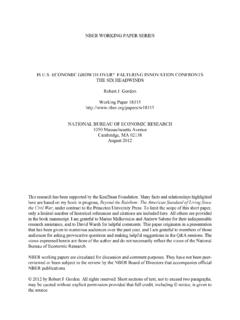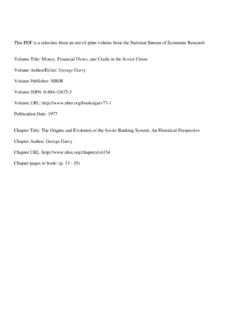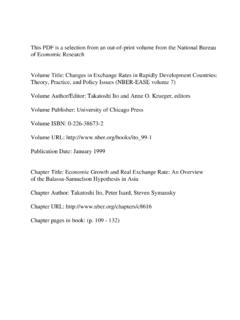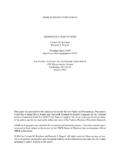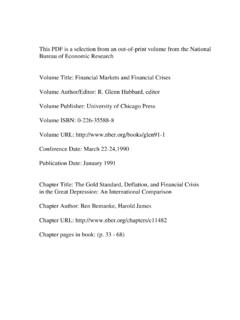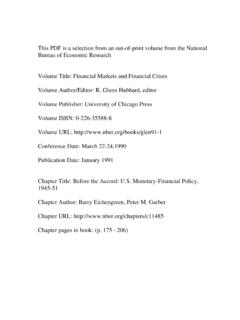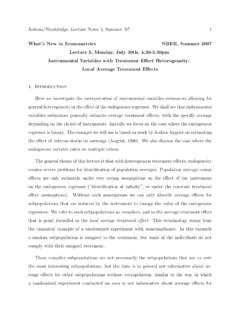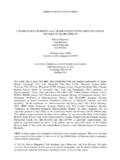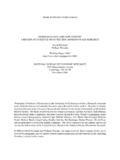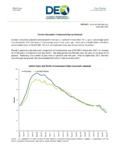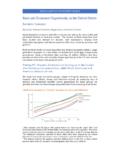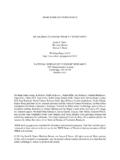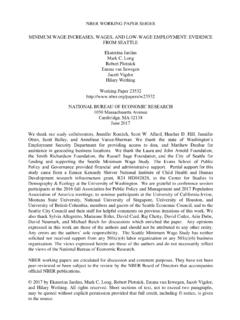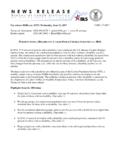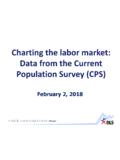Transcription of religion paper asr - National Bureau of Economic Research
1 NBER WORKING paper SERIES. religion AND Economic GROWTH. Robert J. Barro Rachel M. McCleary Working paper 9682. National Bureau OF Economic Research . 1050 Massachusetts Avenue Cambridge, MA 02138. May 2003. This Research was supported by grants from the National Science Foundation and the John Templeton Foundation. We have benefited from comments by Gary Becker, Francesco Caselli, Mark Chaves, Ed Glaeser, Charles Harper, Jason Hwang, Laurence Iannaccone, Greg Mankiw, James Montgomery, Thomas Osang, Robert Woodberry, and participants in several seminars and views expressed herein are those of the authors and not necessarily those of the National Bureau of Economic Research .
2 2003 by Robert J. Barro and Rachel M. McCleary. All rights reserved. Short sections of text not to exceed two paragraphs, may be quoted without explicit permission provided that full credit including notice, is given to the source. religion and Economic Growth Robert J. Barro and Rachel M. McCleary NBER Working paper No. 9682. May 2003. JEL No. O1, O4, Z1. ABSTRACT. Empirical Research on the determinants of Economic growth has typically neglected the influence of religion . To fill this gap, we use international survey data on religiosity for a broad panel of countries to investigate the effects of church attendance and religious beliefs on Economic growth.
3 To isolate the direction of causation from religiosity to Economic performance, we use instrumental variables suggested by our analysis of systems in which church attendance and beliefs are the dependent variables. The instruments are dummy variables for the presence of state religion and for regulation of the religion market, an indicator of religious pluralism, and the composition of religions. We find that Economic growth responds positively to the extent of religious beliefs, notably those in hell and heaven, but negatively to church attendance. That is, growth depends on the extent of believing relative to belonging.
4 These results accord with a perspective in which religious beliefs influence individual traits that enhance Economic performance. The beliefs are, in turn, the principal output of the religion sector, and church attendance measures the inputs to this sector. Hence, for given beliefs, more church attendance signifies more resources used up by the religion sector. Robert J. Barro Rachel M. McCleary Department of Economics Weatherhead Center for International Affairs Harvard University Harvard University Cambridge, MA 02138 Cambridge, MA 02138. and NBER I. Introduction Previous Research by economists has used the experience of a broad panel of countries to assess the determinants of Economic growth see, for example, Barro (1991, 2000) and Barro and Sala-i-Martin (2003, Ch.)
5 12). This literature has isolated a number of variables that predict subsequent rates of Economic growth. One general conclusion is that successful explanations of Economic performance have to go beyond narrow measures of Economic variables to encompass political and social forces. In particular, the empirical results reveal important influences on growth from government policies and public institutions. Some researchers, such as Huntington (1996), Landes (1999), and Inglehart and Baker (2000), argue that explanations for Economic growth should go further to include a nation's culture. Culture is usually thought to influence Economic outcomes by affecting personal traits such as honesty, thrift, willingness to work hard, and openness to strangers.
6 religion is one important dimension of culture. Thus, Weber (1930) argued that religious practices and beliefs had important consequences for Economic development. Nevertheless, economists and other researchers have paid little attention to religion and other measures of culture as determinants of Economic growth. Our principal aim in this paper is to fill this gap by analyzing the influences of religious participation and beliefs on a country's rate of Economic progress. The most difficult inference problem in the social sciences involves the sorting out of directions of causation with non-experimental data.
7 In our case, we want to know how religiosity affects aggregate Economic performance, but we also have to worry about reverse effects from Economic development to religion . This reverse channel has, in fact, been the focus of a substantial literature in the sociology of religion . One prominent theory in this literature is the secularization hypothesis, whereby Economic development causes individuals to become less religious, as measured by church attendance and religious beliefs. The beliefs may refer to heaven, hell, an after- life, God, and so on, or may just refer to tendencies of people to characterize themselves as religious.
8 The secularization hypothesis also encompasses the idea that Economic development causes organized religion to play a lesser role in political decision-making and in social and legal processes more Economic development does not have a single dimension, but rather involves regular patterns of change in a number of Economic , social, and political variables. For example, development typically features not only rising per capita incomes but also higher levels of education, urbanization, and life expectancy, and lower levels of fertility. The combined effects from higher life expectancy and lower fertility imply a shift in the age structure toward the old and away from the young.
9 The effect of Economic development on religiosity likely depends on the specific aspect of development, for example, more education means something different from lower fertility. Our analysis of a broad panel of countries has enough variation in the data to distinguish among these effects. 1. The secularization hypothesis appears in Weber (1930), but he credits the idea to John Wesley's writings in the late 1700s. For more recent discussions, see Wilson (1966), Berger (1967), Martin (1978), and Chaves (1994). 2. The secularization hypothesis remains controversial, and an important competing theory focuses on market or supply-side This approach downplays the role of Economic development and other demand factors for religion and focuses instead on competition among religion providers.
10 A greater diversity of religions available in a country or region is thought to promote greater competition, hence, a better quality religion product, and, hence, greater religious participation and beliefs. More fundamentally, the extent of religious diversity and competition are thought to depend on how the government regulates the market for religion . For example, the existence of an established state church as in Scandinavia is viewed as one source of a low degree of religious pluralism and, therefore, of low participation in organized religion . Chaves and Cann (1992) extended this argument by using empirical measures of the extent of state involvement and interference with church activities.
